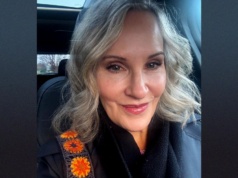In my personal experience in the early days of caregiving my mother I had to learn the hard way in how to best advocate for her and her health. She had mild dementia, and thus, there were times (many) when she didn’t get the facts straight, or she wouldn’t bring up issues that we were there for. I found myself interjecting and interrupting, and my mother would become absolutely furious with me!
In addition, she would fail to bring up matters that I felt were of concern; being a fall risk, a driving risk, concerns about your loved one’s ability to live independently. There are also other concerns, like depression, medication management and loneliness. These subjects can induce a lot of defensiveness from a senior, especially if these topics create consequences that involve a major change in their life.
Over time, I learned to be an active but “silent” team member in my mom’s care. I realized it was important to remain her daughter and not her disciplinarian. I learned to support her as a daughter, and to respect her as the mother. There is no place for me to “tattle” on her, or make her feel like I was out to hurt her or create division between her and her doctor. Yet, I needed to find a way to still communicate my concerns to the doctor and allow him/her to be the “bad guy” in delivering news that is likely hard to take.
The White Envelope
Then I got an idea! Before her next appointment I sat down and wrote a note to the doctor of my concerns as her daughter- including the reason we were there, and also, I communicated to the doctor my fears and concerns. Upon check in, I delivered the note, in a plain white envelope to the receptionist at the front desk, with the name of the doctor on it. Mom didn’t even realize anything, because she just likely figured it was paperwork that needed to be delivered. That way everything was of full knowledge to the doctor before he even entered the room with mom and me. I remained silent, and a supportive daughter that I should be, and allowed him to deal directly with her.
Dementia and Health Practitioners
If your loved one has dementia, there may be times where their communication to medical staff is not reflective of what is happening. Your loved one may be dealing with chronic pain and miserable, only to communicate to a doctor that they are “fine.” I know, for me, it was important that I was factual about dates, times, etc. One day a nurse took me aside and said: “Suzanne, the truth at this point in your mom’s life, is pretty much irrelevant.” In other words, those who work with seniors who have dementia understand what is happening. I learned again, as her daughter, to stay out of the dialogue between Mom and her doctor, or healthcare practitioner.
Bedside Manner
Through the six years that I cared for my mom, we ran across many different doctors. Most of the time they were wonderful, and I only share this, because there may come a time where the doctor will talk “past” your parent only to you. There may be a time where the doctor doesn’t take the appropriate time to sit down and listen to your senior loved one fully, due to the fact that they are on a fast schedule, and you are lucky to get 15 minutes from them.
This is not a good situation for your parent. Make sure that you advocate for a doctor who will take the time and speak directly and respectfully to your senior parent. They have a moral right to be heard.
The Medical Directive
There may be a time that you will be in a situation like I was at the end of your parent’s life. You will be asked to make decisions that initiates comfort care, hospice, and no intervention in keeping them alive. Make sure that as a son or daughter of a senior loved one that you are mindful that the choices that your parent makes for their health. Listen to them before that day ever happens and discuss options with their doctor. Make sure that they understand (if possible) the different options that will be presented.
Creating a peaceful partnership with your loved ones’ doctor is something that should be the ultimate goal over the long term. Take your time, and strive for harmony. It will be the best for you all, over the long term.











